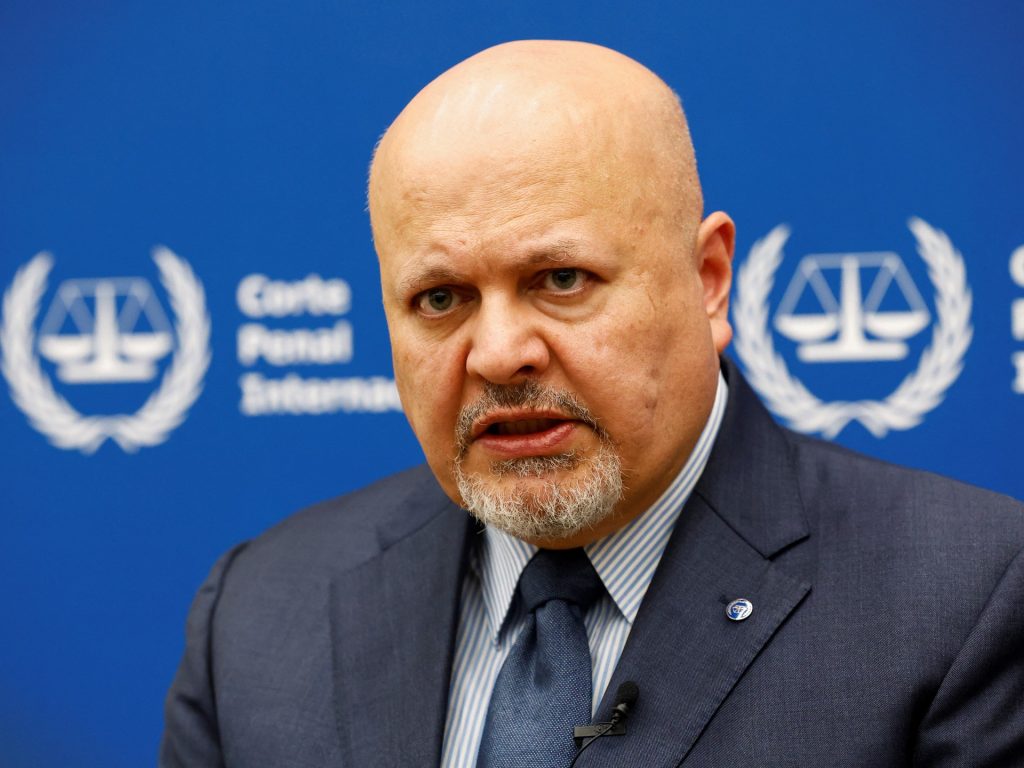The United States House of Representatives has voted in favor of a bill to sanction the International Criminal Court (ICC) in retaliation for its arrest warrants against Israeli Prime Minister Benjamin Netanyahu and the country’s former defense minister Yoav Gallant.
Lawmakers in the lower house of the US Congress passed the Illegitimate Court Counteraction Act on Thursday by an overwhelming majority, 243 to 140, signaling their strong support for Israel.
45 Democrats joined 198 Republicans in supporting the bill. No Republican voted against it.
The bill now heads to the Senate, where a Republican majority was sworn in earlier this month.
The law imposes sanctions on any foreign national who assists the ICC in its attempts to investigate, arrest, or prosecute a U.S. citizen or a citizen of an allied country that does not recognize the court’s authority.
Neither the United States nor Israel are parties to the Rome Statute, which established the ICC.
Sanctions include freezing property and denying visas to foreigners who materially or financially contribute to the court’s efforts.
“America is passing this law because a sham court is trying to arrest the prime minister of our great ally Israel,” Rep. Brian Mast, the Republican chairman of the House Foreign Affairs Committee, said in a speech before Thursday’s vote.
The vote, one of the first since the new Congress met last week, underscores the strong support of President-elect Donald Trump’s fellow Republicans for the Israeli government, despite the ongoing war in Gaza.
This conflict has killed more than 46,000 Palestinians, many of them women and children, since it began in October 2023. United Nations experts have condemned Israeli methods in Gaza as “consistent with the characteristics of genocide.”
This prompted International Criminal Court prosecutors to issue arrest warrants for Netanyahu and Gallant last May.
In response, U.S. lawmakers threatened retaliation against the ICC. In a letter to outgoing US President Joe Biden in May, dozens of human rights groups called on him to reject calls for punitive measures.
“Heeding these calls would cause grave harm to the interests of all victims worldwide and to the ability of the U.S. government to promote human rights and justice,” the groups wrote at the time.
This week, another group of human rights organizations released another letter ahead of Thursday’s vote condemning the House bill as an attack on an “independent judicial institution.”
They wrote that sanctioning the court would “jeopardize the ability of desperate victims of any of the court’s investigations to access justice, weaken the credibility of sanctions tools in other contexts, and place the United States at odds with its closest allies.”
The letter warned that imposing “asset freezes and entry restrictions” on ICC allies would bring the US “the stigma of siding with impunity and justice.”
Nevertheless, the US Senate under Majority Leader John Thune has promised to quickly review the law so that Trump can sign it into law after he takes office on January 20th.
In 2020, during his first term, Trump sanctioned senior ICC leaders over the court’s investigations into U.S. crimes in Afghanistan and Israeli crimes in the occupied Palestinian territories. President Biden later lifted these sanctions.
The ICC, based in The Hague, is a permanent court that can prosecute individuals for war crimes, crimes against humanity, genocide and the crime of aggression.
The State of Palestine has been a member since 2015 and the court first announced an investigation in 2019 into crimes committed there by Israeli and Hamas officials.
Although Israel is not a party to the International Criminal Court, the court has jurisdiction over crimes committed on the territory of a member state, regardless of the nationality of those who commit them.
The US has supported the court at times, such as when the ICC’s top prosecutor sought an arrest warrant against Russian President Vladimir Putin for alleged war crimes in Ukraine. Russia, like Israel and the USA, is not a member of the court.
Karim Khan, the prosecutor who issued the arrest warrants against Netanyahu and Gallant, said his decision was consistent with the court’s approach in all of its cases, and he noted that the arrest warrants could prevent crimes in progress.


